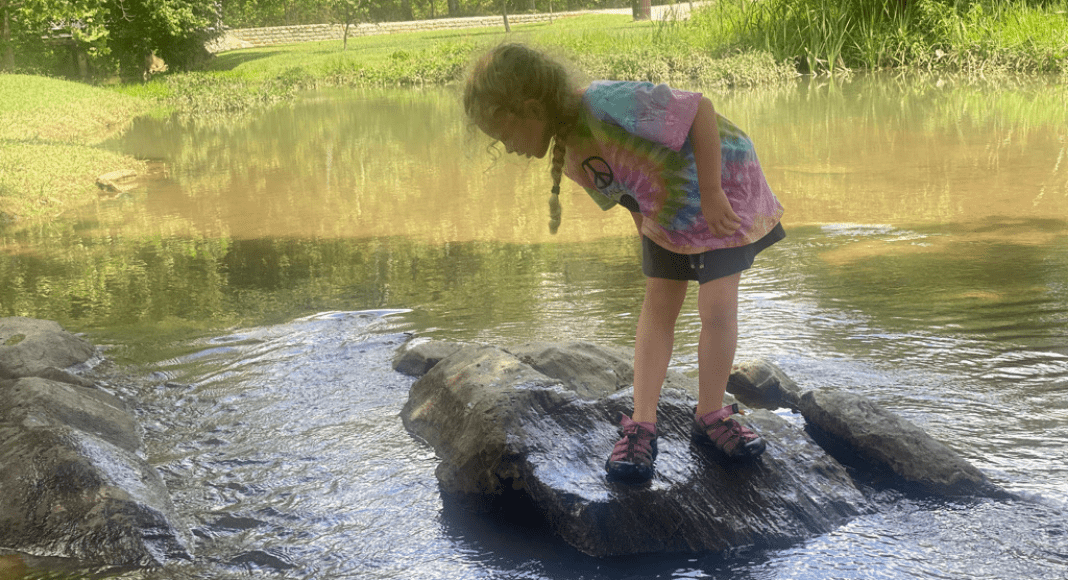 What does it really mean to have a good imagination?
What does it really mean to have a good imagination?
I think we as parents are always experiencing small moments of pride and pleasure when our children are complimented. I often feel that the epitome of all compliments runs along the lines of, “Your child is just so creative and imaginative!” Who doesn’t want to have a little one who can slay dragons whilst drinking tea with her favorite unicorn? It’s all in the day’s work for a child whose noggin can create a fog of pretend so thick you can see it clouding their eyes.
Having been one of those children, I would like to say it is absolutely as awesome as you think. However, this ability to imagine the world six ways to Sunday, with a dragon or two for spice, is also one of the main reasons I suffer from nearly overwhelming anxiety.
“What do you mean?” I imagine some of you asking. Those of you with heightened creative craniums are silent, I notice.
When your brain can conjure almost any and all scenarios in extremely convincing detail, this doesn’t always come out as an epic pirate battle, nor a vivid memory of the day you won your first trophy at karate, and sometimes not even as an immersive replay of your favorite scene in Harry Potter (book or movie…because it’s your head).
Instead, your traitorous thoughts might drop you into the middle of an episode of the Walking Dead and you aren’t one of the lucky characters. As a child you might have a recurring dream of a witch with red eyes who is inexorably making her way to your window, night after night after night, and you can see the intent in her eyes—true story. You might be fading out while in line at the grocery store and wonder what you would do if there were a shooter, and suddenly, you are in that moment.
It comes down to this: your overactive brain can conjure lovely wonderful images, but it can also show you every horrible possibility when given the opportunity.
As a writer whose trade it is to live in my own cranium, I can tell you my sojourns into imagination are about half positive and half terrifying—and the current world climate tends to balance those scales farther and farther into unpleasant territory. Parenting adds its own special level of dread.
Sometimes the images you conjure are of your daughter laying on the floor with her head caved in because she was jumping on the bed. Or of your eight-month-old moving a piece of laundry on the floor and finding a brown recluse. You might see the car wreck on the street and put yourself in their place. You watch the news of wars and sickness and you imagine yourself and your children on those streets with the sound of gunfire chasing you.
And because you have an amazing imagination, you aren’t just seeing it, you are feeling it. You are drowning in it. Ok, maybe you aren’t. But I am.
When we look at troubled artists throughout history—the greats (and no, I do not count myself anywhere in there)—you will see the trend. They tended to be brilliantly creative and excessively troubled. Some resorted to drinking, ovens, and various other methods of drowning out the not-so-desirable traps in their brains.
All this is to say that when I look at my daughter, who is currently unwilling to enter any room alone because there are monsters, or who had a dream the other night that she had needles sticking out of her leg, I do not just laugh it off. I know how visceral those feelings can be. How real my head can make those monsters. As an adult, I still can’t watch scary movies or be outside in the dark too long. My brain fills shadows much too easily.
As I raise my creative daughter, I strive to find ways to tame her imagination. To help her move beyond the pretend and back into the real and current moment. This might be as simple as asking her to breathe and think of something else. It might involve bringing in dream catchers and having her use that imagination to catch those monsters so they can’t bother her any more. But mostly, it simply involves me recognizing how visceral these thoughts are and not belittling them.
So, if you have a creative child and you don’t struggle with the same burdens, try and take a moment to recognize their difficulties, which are real, and find methods to help them cope, to help them tame the wilderness into something less overwhelming.





















